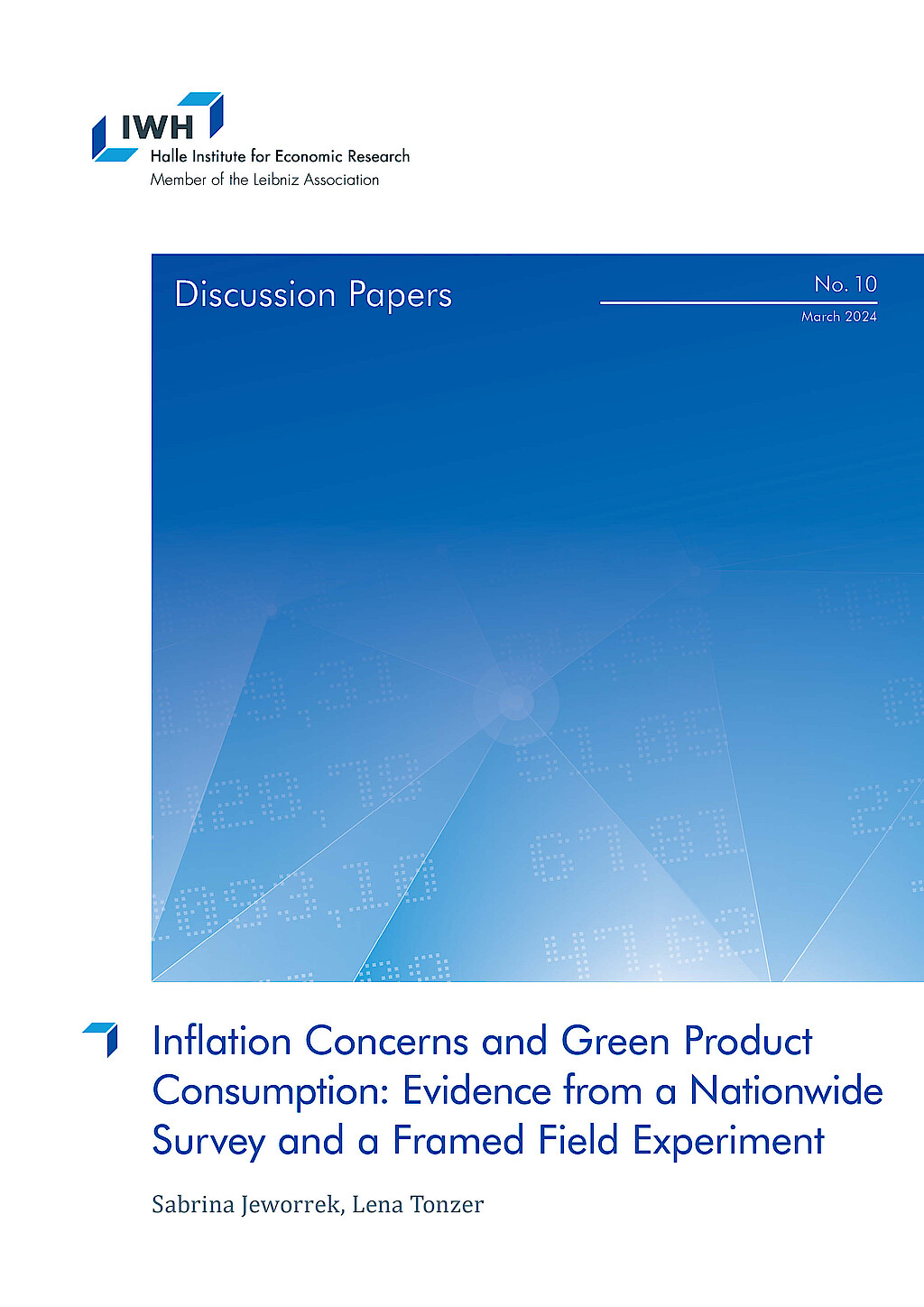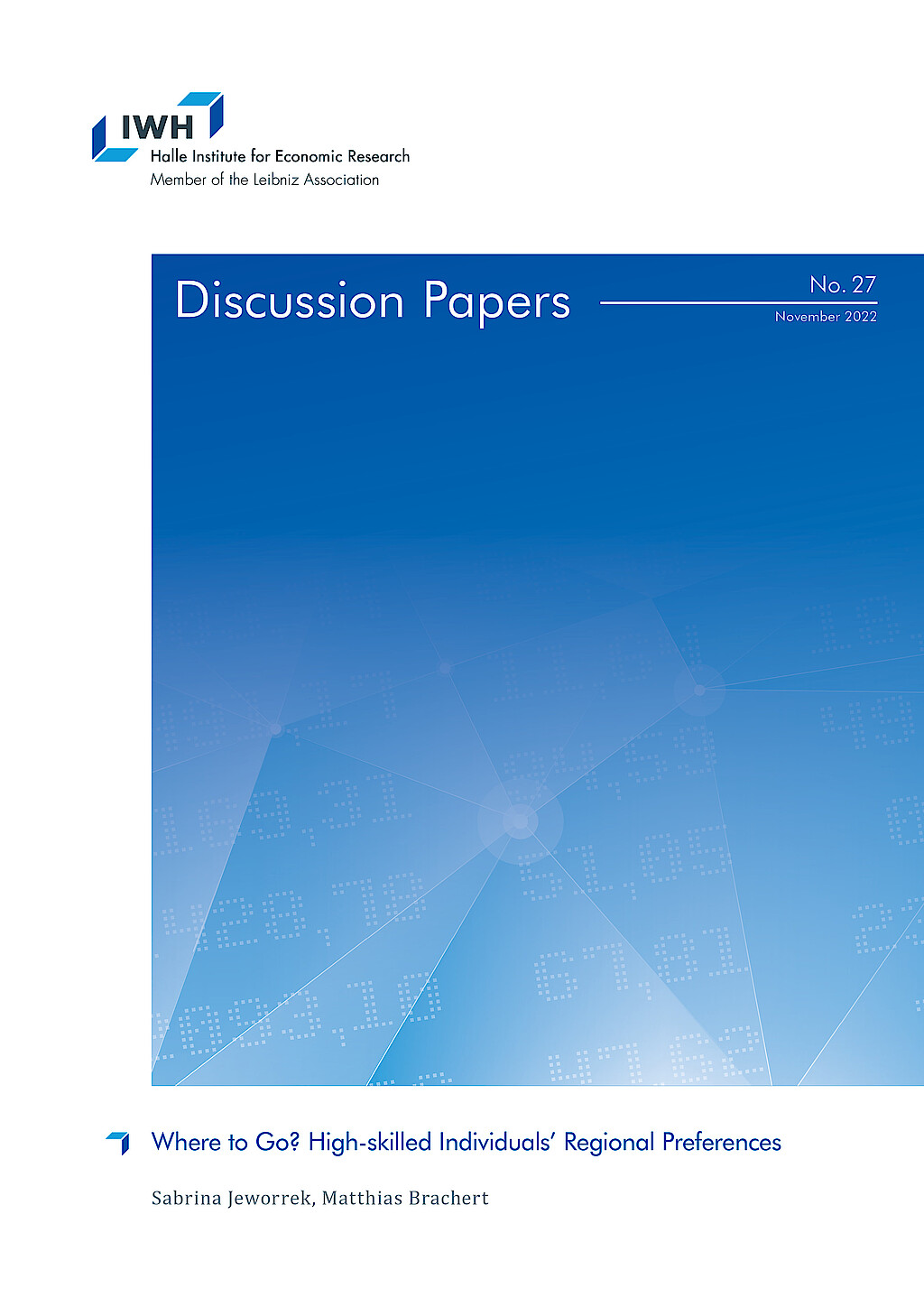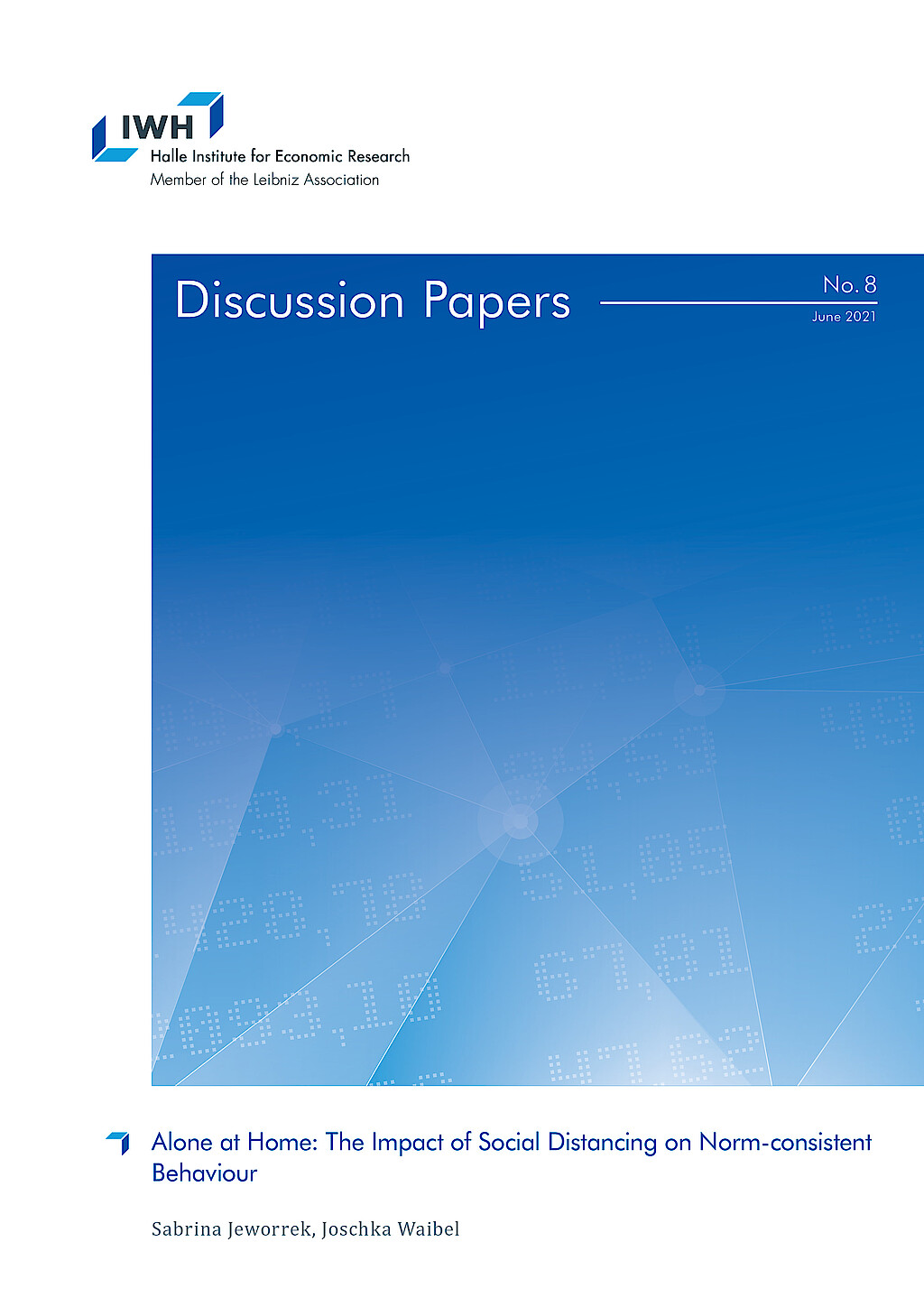Verhalten in Organisationen und Unternehmenserfolg
Die Forschungsgruppe untersucht, wie sich nicht-monetäre Arbeitsplatzcharakteristika (z. B. Mitsprache am Arbeitsplatz oder die wahrgenommene Sinnhaftigkeit der Arbeitsaufgabe) und Managerentscheidungen (z. B. bezogen auf Entlassungen) auf die Motivation der Arbeitnehmer auswirken. Der methodische Schwerpunkt der Gruppe liegt auf der Durchführung von (Feld-)Experimenten. Diese ermöglichen nicht nur eine exakte Messung des Arbeitseinsatzes; vor allem können Leistungsänderungen durch konstant gehaltene Bedingungen allein auf die Intervention des Experimentators zurückgeführt werden.
Forschungscluster
Produktivität und InstitutionenIhr Kontakt

- Abteilung Gesetzgebung, Regulierung und Faktormärkte
Referierte Publikationen

Trade Union Membership and Paid Vacation in Germany
in: IZA Journal of Labor Economics, Nr. 1, 2015
Abstract
In Germany, dependent employees take almost 30 days of paid vacation annually. We enquire whether an individual’s trade union membership affects the duration of vacation. Using data from the German Socio-Economic Panel (SOEP) for the period 1985 to 2010 and employing pooled OLS-estimators, we find that being a union member goes along with almost one additional day of vacation per year. Estimations exploiting the panel structure of our data suggest that a smaller part of this vacation differential can be due to the union membership status, while self-selection effects play a more important role.
Arbeitspapiere

Inflation Concerns and Green Product Consumption: Evidence from a Nationwide Survey and a Framed Field Experiment
in: IWH Discussion Papers, Nr. 10, 2024
Abstract
<p>Promoting green product consumption is one important element in building a sustainable society. Yet green products are usually more costly. In times of high inflation, not only budget constraints but also the fear that prices will continue to rise might dampen green product consumption and, hence, limit the effectiveness of exerted efforts to promote sustainable behaviors. To test this suggestion, we conducted a Germany-wide survey with almost 1,200 respondents, followed by a framed field experiment (N=500) to confirm causality. In the survey, respondents’ stated “green” purchasing behavior is, as to be expected, positively correlated with concerns about climate change. It is also negatively correlated with concerns about future inflation and energy costs, but after controlling for observable characteristics such as income and educational level only the correlation with concerns about future prices remains significant. This result is driven by individuals with below-median environmental attitude. In the framed field experiment, we use the priming method to manipulate the saliency of inflation concerns. Whereas sizably relaxing the budget constraint (i.e., by 50 percent) has no impact on the share of organic products in participants’ baskets, the priming significantly decreases the share of organic products for individuals with below-median environmental attitude, similar to the survey data.</p>

Where to Go? High-skilled Individuals’ Regional Preferences
in: IWH Discussion Papers, Nr. 27, 2022
Abstract
We conduct a discrete choice experiment to investigate how the location of a firm in a rural or urban region affects job attractiveness and contributes to the spatial sorting of university students and graduates. We characterize the attractiveness of a location based on several dimensions (social life, public infrastructure, connectivity) and combine this information with an urban or rural attribution. We also vary job design as well as contractual characteristics of the job. We find that job offers from companies in rural areas are generally considered less attractive. This is true regardless of the attractiveness of the region. The negative perception is particularly pronounced among persons with urban origin and singles. These persons rate job offers from rural regions significantly worse. In contrast, high-skilled individuals who originate from rural areas as well as individuals with partners and kids have no specific preference for jobs in urban or rural areas.

Alone at Home: The Impact of Social Distancing on Norm-consistent Behavior
in: IWH Discussion Papers, Nr. 8, 2021
Abstract
Around the globe, the COVID-19 pandemic has turned daily live upside down since social distancing is probably the most effective means of containing the virus until herd immunity is reached. Social norms have been shown to be an important determinant of social distancing behaviors. By conducting two experiments and using the priming method to manipulate social isolation recollections, we study whether social distancing has in turn affected norms of prosociality and norm compliance. The normative expectations of what behaviors others would approve or disapprove in our experimental setting did not change. Looking at actual behavior, however, we find that persistent social distancing indeed caused a decline in prosociality – even after the relaxation of social distancing rules and in times of optimism. At the same time, our results contain some good news since subjects seem still to care for norms and become more prosocial once again after we draw their attention to the empirical norm of how others have previously behaved in a similar situation.







